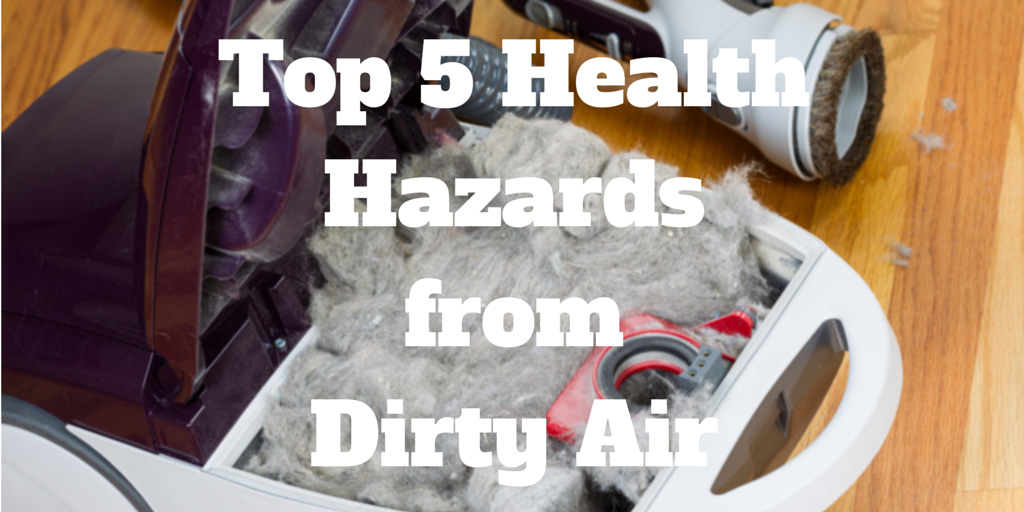Top 5 Health Hazards from Dirty Air
Published by Jason Hite on Nov 05, 2014

We need air in order to survive, but dirty air can actually do our health a great deal of harm. Even though you may think that your office and your home are safe places to be, if the air inside these spaces isn’t clean and fresh, it can have a seriously negative impact on health. Here are the top 5 health hazards from dirty air, and what you can do about them:
- Asthma
- Congestion
- Wheezing and Persistent Cough
- Irritated Eyes, Nose, and Throat
- Headaches and Fatigue
These are health issues that can affect anyone, at any age. Asthma is a growing concern today, with many young children suffering from asthma attacks that are brought on by unclean air. Rather than simply treating the symptoms of asthma, families can take steps around the home to help reduce the risk of asthma attacks.
Congestion occurs when a person is suffering from a cold or allergies, but if it becomes a persistent issue, it could be related to the air circulating in the home. It is not normal to feel congested on a regular basis. Wheezing and coughing are other allergy-related symptoms, but if they are happening more frequently, and especially outside of the typical allergy seasons, then it is important to get them checked out by a medical professional.
Itchy, watery eyes, a scratchy throat, and an annoying cough can all be symptoms of poor indoor air quality. They can lead to more serious issues. Headaches and fatigue may not seem like they are caused by dirty air, but if the HVAC filter hasn’t been changed and the ducts are full of dust mites blowing around the rooms, this could definitely be the cause.
If there are children or elderly family members in the household, their immune systems are more easily compromised. When they begin to suffer from these breathing and health issues, make sure to take them to the doctor right away. The doctor may not only suggest a medical treatment, but they may also mention that there are steps to take inside the home to help lessen the recurrence of symptoms.
So, what can you do to keep the air inside of your home clean? Simple things like changing your air filter regularly, cleaning your ducts, and vacuuming often can all help. Clearing out cluttered spaces like closets and basements is a great way to remove those items that collect dust. Remember that maintaining clean air in the home is an ongoing battle, not just a one-time fix. Keep up with regular cleaning, and be sure to do proper maintenance on your furnace and AC units.

